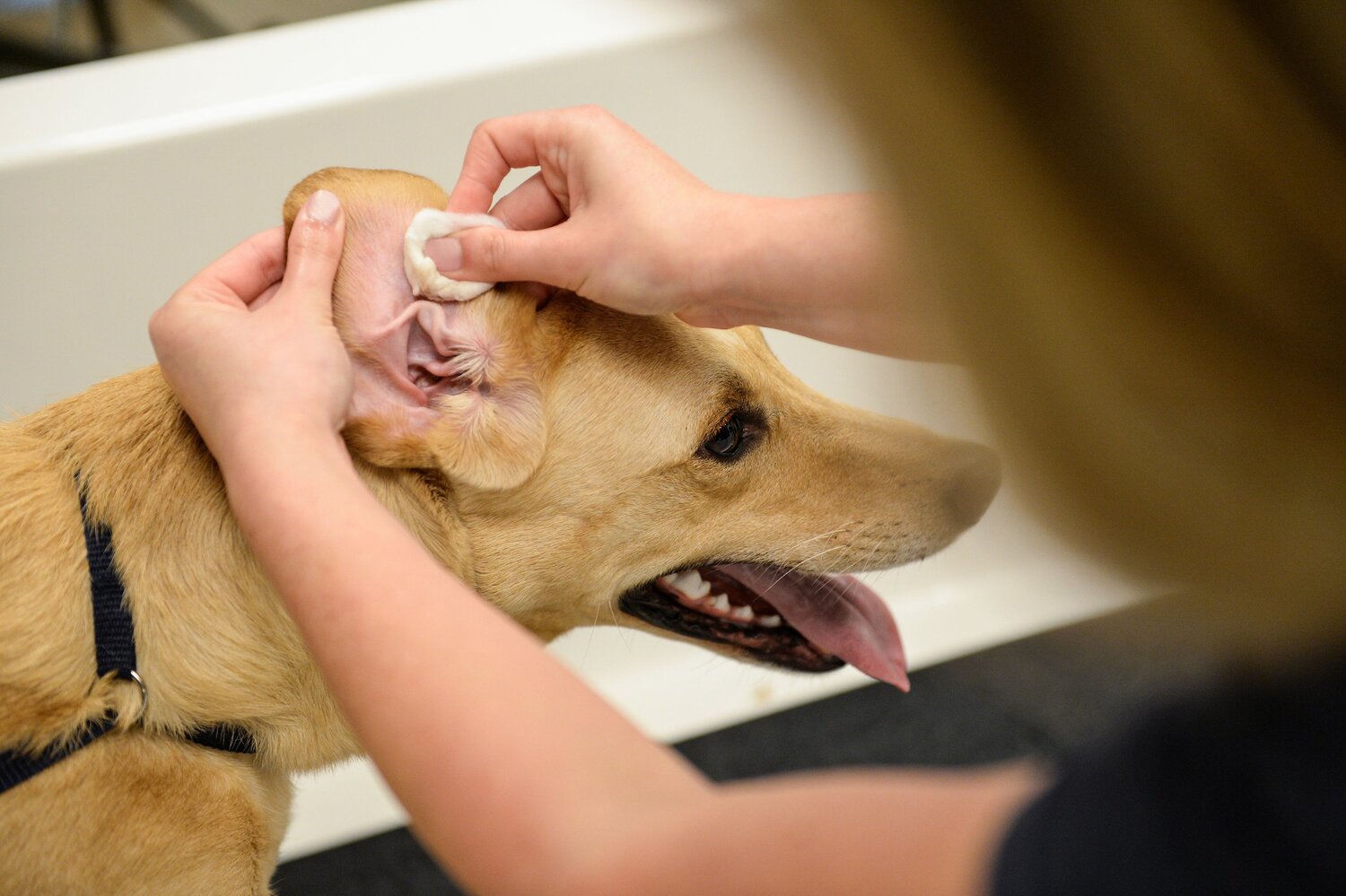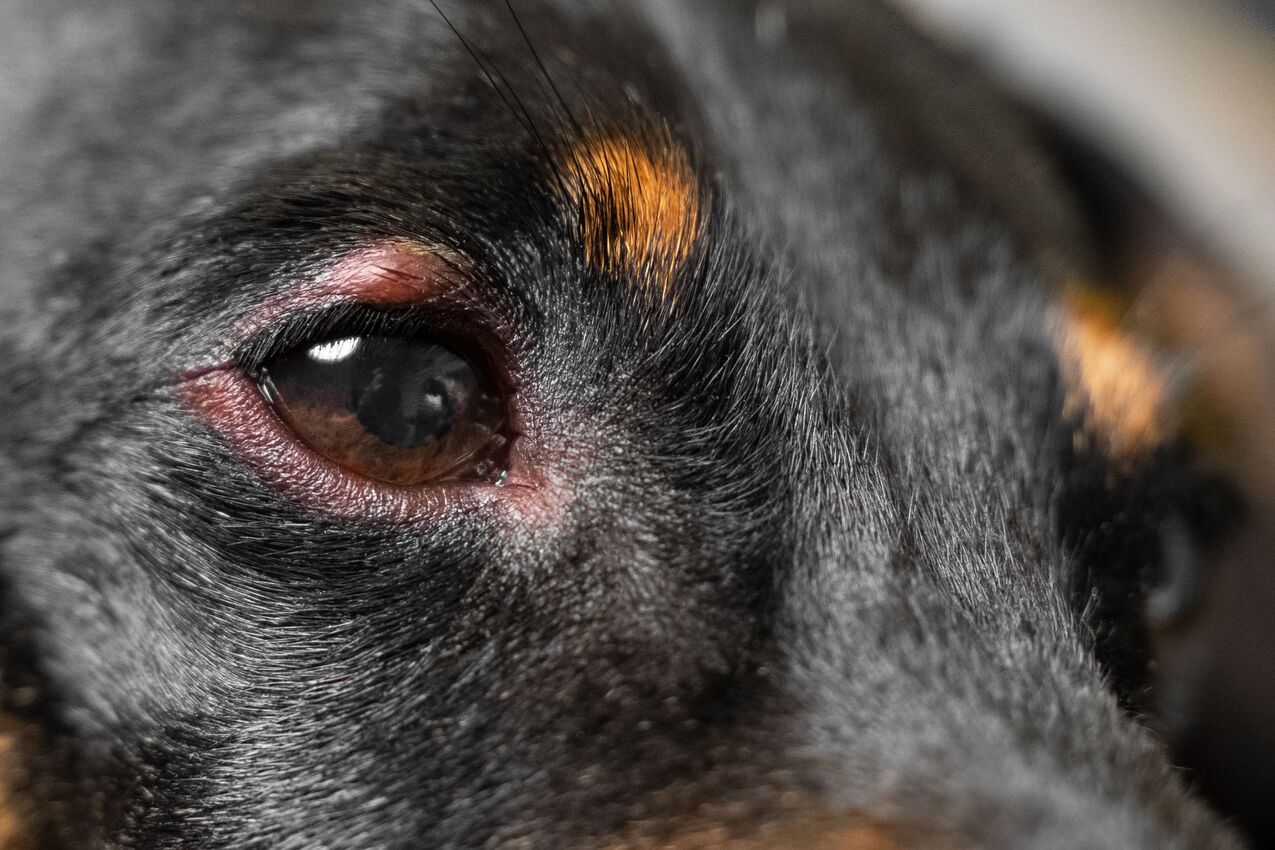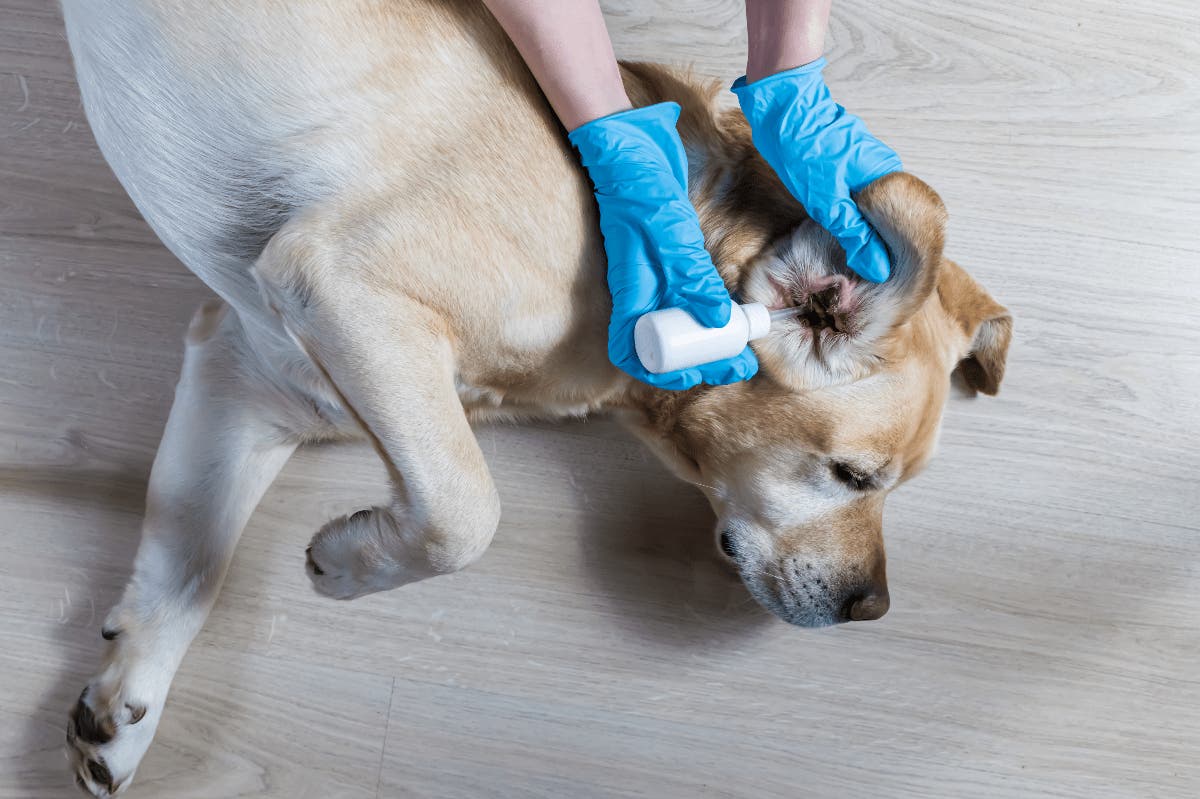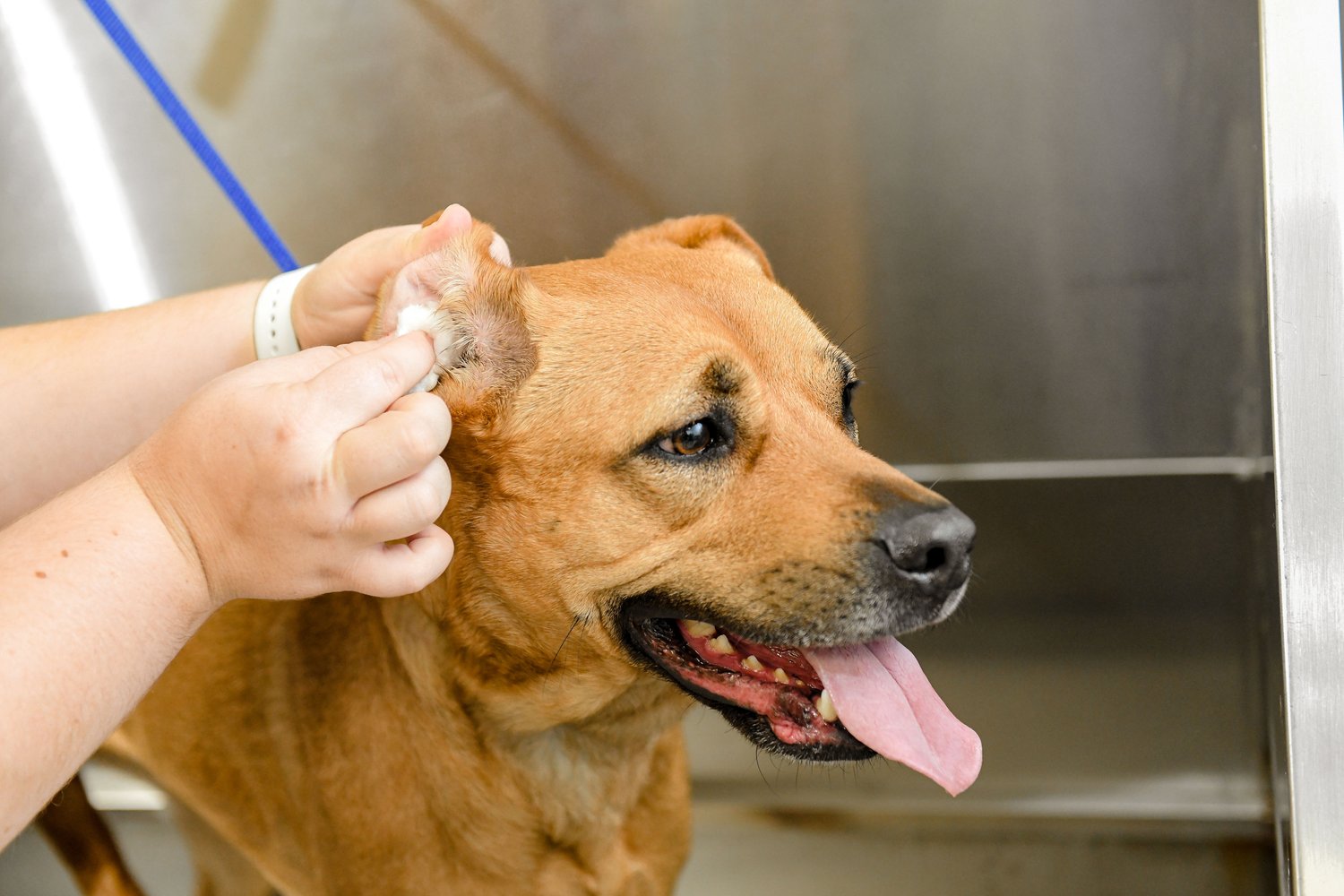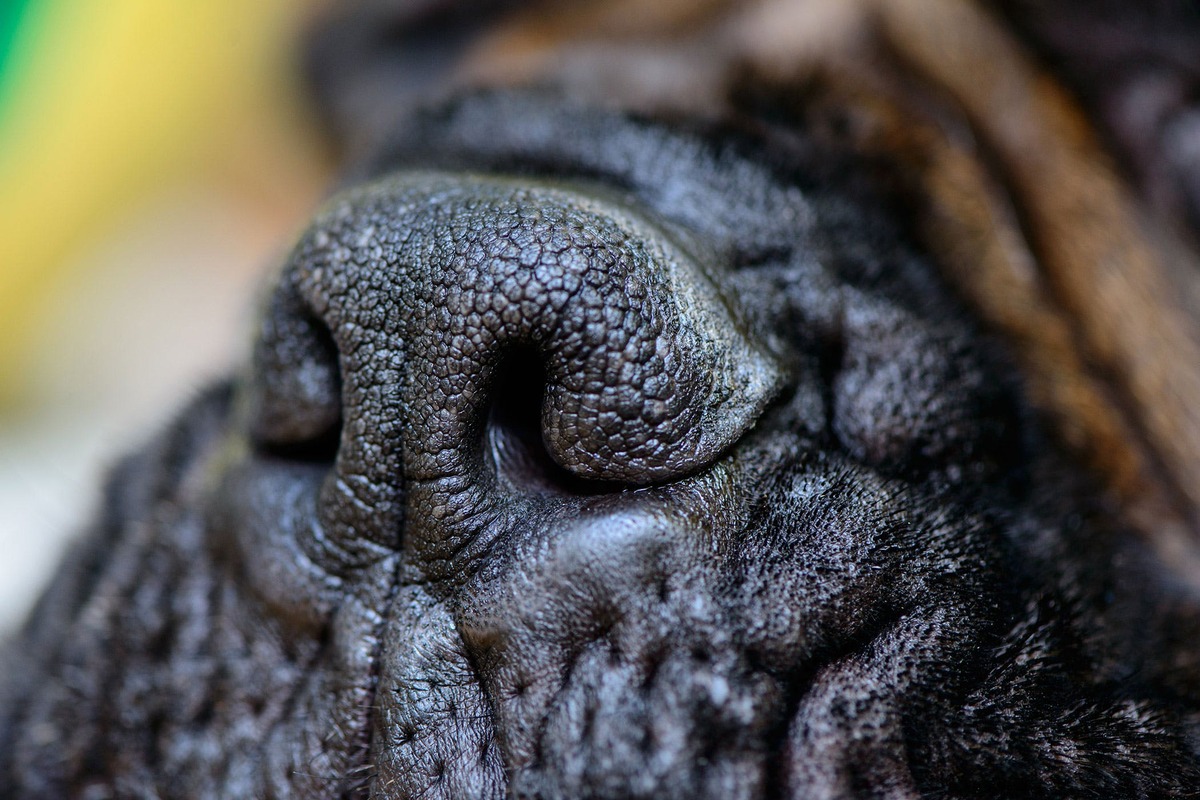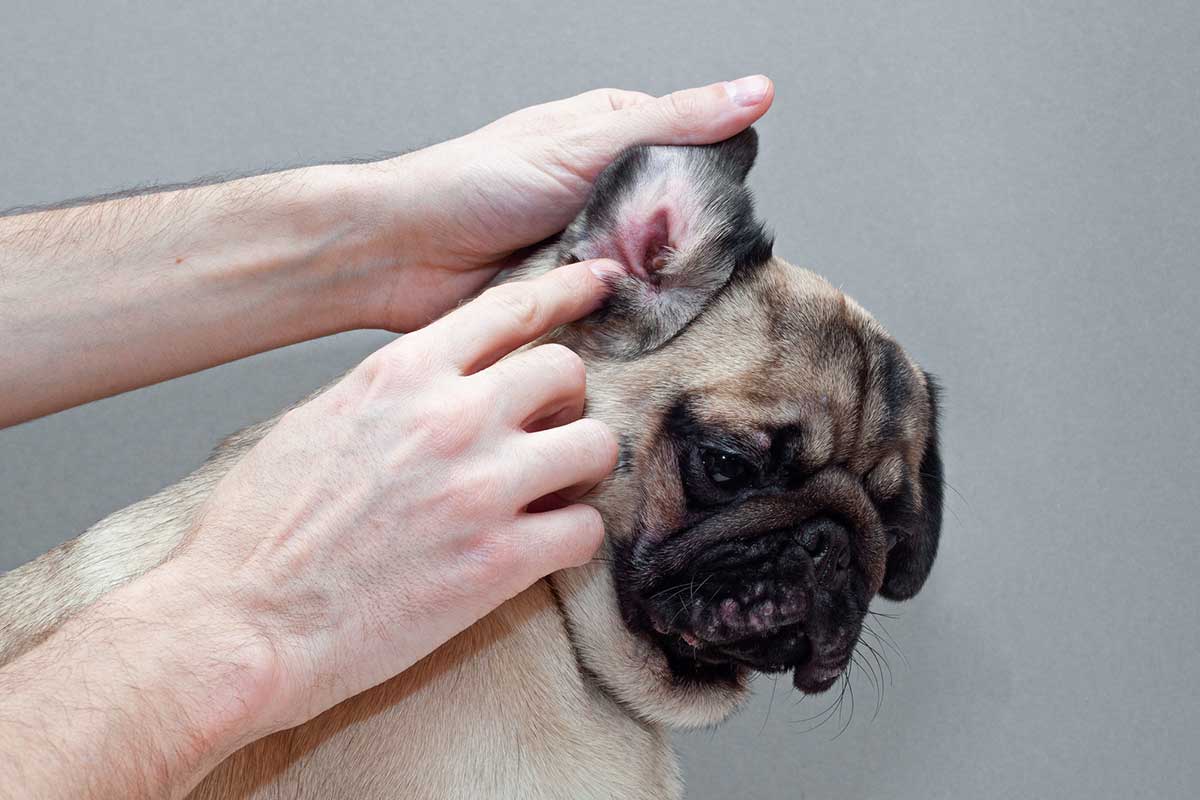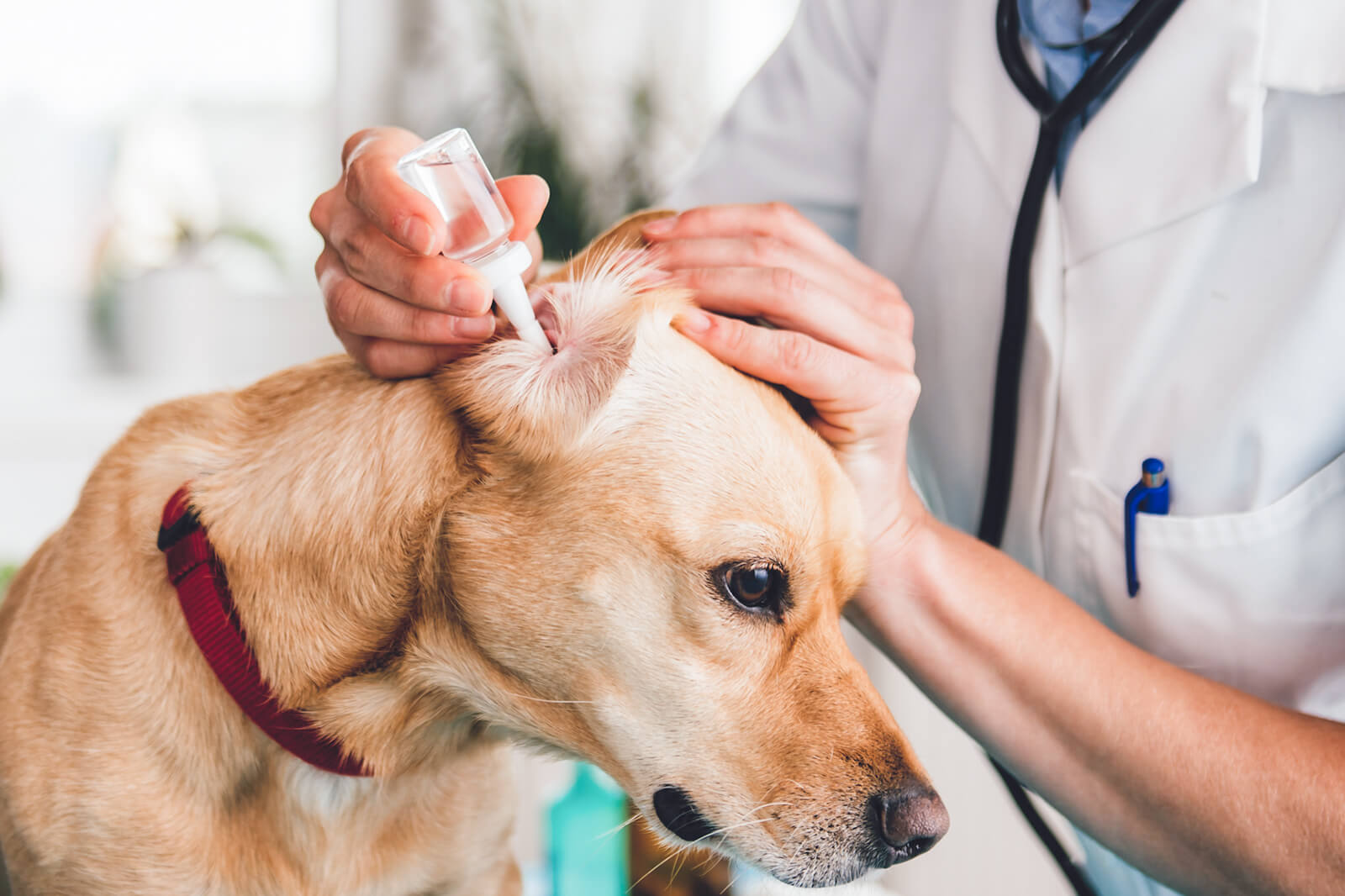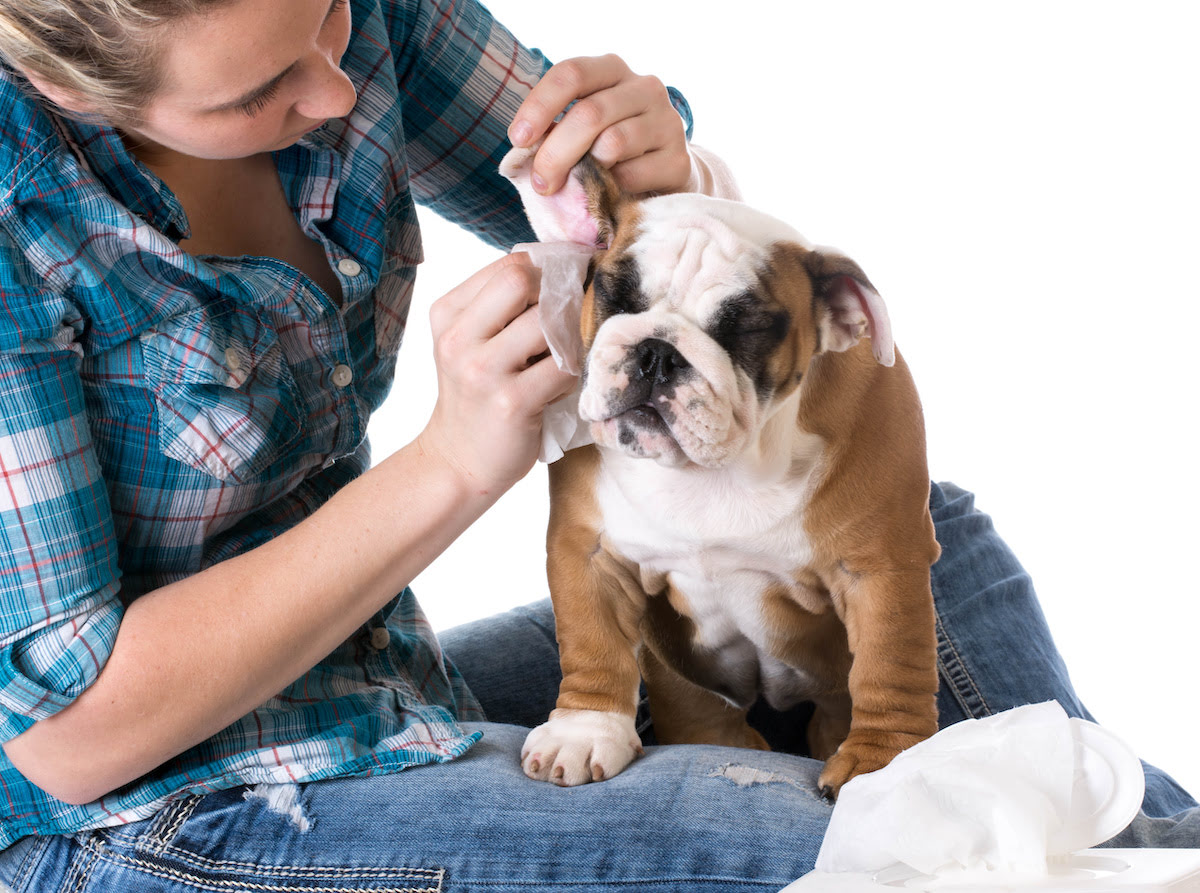Home>Health & Wellness>Common Health Issues>Eye and Ear Health>What Can I Do For My Dog’s Chronic Ear Infection?


Eye and Ear Health
What Can I Do For My Dog’s Chronic Ear Infection?
Published: February 2, 2024
Discover effective solutions for your dog's chronic ear infection and improve their eye and ear health with expert advice and practical tips.
(Many of the links in this article redirect to a specific reviewed product. Your purchase of these products through affiliate links helps to generate commission for Pawsomeoldies.com, at no extra cost. Learn more)
Table of Contents
Understanding Chronic Ear Infections in Dogs
Chronic ear infections in dogs can be a persistent and distressing issue for both pets and their owners. These infections typically affect the outer ear canal, leading to discomfort, irritation, and potential hearing loss for the afflicted canine. It's essential for dog owners to recognize the signs of chronic ear infections and understand the underlying causes to provide the best care for their furry companions.
Chronic ear infections in dogs are often characterized by recurring or long-lasting symptoms, such as persistent itching, redness, swelling, and a foul odor emanating from the ears. Additionally, affected dogs may display signs of discomfort, such as frequent head shaking or tilting, as well as unusual behaviors like rubbing their ears against furniture or the floor.
These infections can stem from various factors, including allergies, ear mites, excessive moisture or wax buildup, anatomical abnormalities, or underlying health conditions. Understanding the root cause of the infection is crucial for effective treatment and prevention strategies.
In some cases, chronic ear infections may be linked to underlying health issues, such as allergies or immune system disorders. Identifying and addressing these underlying conditions is essential for managing and preventing recurrent ear infections in dogs. Furthermore, certain dog breeds with floppy ears or excessive hair in the ear canal may be more prone to chronic ear infections, requiring specific attention and care.
By gaining a comprehensive understanding of chronic ear infections in dogs, pet owners can take proactive measures to address the issue and provide their furry friends with the necessary support and treatment. This knowledge empowers dog owners to seek appropriate veterinary care, implement targeted home care routines, and take preventive measures to safeguard their pets' ear health.
Understanding the complexities of chronic ear infections in dogs enables pet owners to approach the issue with empathy, knowledge, and a proactive mindset, ultimately contributing to the well-being and comfort of their beloved canine companions.
Identifying the Underlying Cause of the Infection
When addressing chronic ear infections in dogs, identifying the underlying cause is paramount to devising an effective treatment and prevention plan. Understanding the specific factors contributing to the recurrent infections allows pet owners and veterinarians to tailor their approach, leading to improved outcomes and long-term ear health for the canine companions.
One common underlying cause of chronic ear infections in dogs is allergies. Canines can be allergic to various environmental factors, including pollen, dust mites, mold, and certain foods. Allergies often manifest in dogs through skin and ear issues, leading to persistent itching, redness, and inflammation in the ears. Identifying and addressing the specific allergens triggering the allergic reaction is crucial in managing chronic ear infections in allergic dogs.
Moreover, ear mites, microscopic parasites that infest the ear canal, can instigate chronic ear infections in dogs. These minuscule pests cause intense itching and irritation, leading to the development of secondary bacterial or yeast infections in the ears. By conducting a thorough examination and microscopic evaluation of ear discharge, veterinarians can confirm the presence of ear mites and initiate targeted treatment to eradicate these troublesome parasites.
Excessive moisture or wax buildup in the ear canal can also serve as a breeding ground for bacteria and yeast, predisposing dogs to recurrent ear infections. Certain dog breeds with floppy ears or narrow ear canals are particularly susceptible to moisture accumulation, making regular ear cleaning and maintenance essential in preventing chronic infections. Additionally, anatomical abnormalities, such as narrow ear canals or excessive hair growth within the ears, can contribute to chronic ear issues, necessitating specialized care and attention.
Furthermore, underlying health conditions, such as hypothyroidism or autoimmune disorders, can compromise a dog's immune system, making them more susceptible to recurrent ear infections. Identifying and addressing these systemic health issues is crucial in managing chronic ear infections and improving the overall well-being of affected dogs.
By meticulously identifying the underlying cause of chronic ear infections in dogs, pet owners and veterinarians can implement targeted treatment strategies, including allergy management, parasite control, regular ear cleaning, and addressing systemic health issues. This proactive approach not only alleviates the immediate discomfort associated with ear infections but also plays a pivotal role in preventing future recurrences, ultimately promoting the ear health and overall quality of life for dogs.
Seeking Veterinary Treatment for Chronic Ear Infections
Seeking veterinary treatment is crucial when addressing chronic ear infections in dogs. Veterinarians play a pivotal role in diagnosing the underlying cause of the infections and devising targeted treatment plans to alleviate discomfort and promote long-term ear health for canine companions.
Upon observing symptoms of chronic ear infections in their dogs, such as persistent itching, redness, swelling, or a foul odor emanating from the ears, pet owners should promptly seek professional veterinary care. Veterinarians possess the expertise to conduct thorough examinations of the ears, including otoscopic evaluations to assess the ear canal and tympanic membrane. This comprehensive assessment allows veterinarians to identify the presence of inflammation, discharge, foreign bodies, or anatomical abnormalities within the ears, providing valuable insights into the nature and severity of the ear infections.
In cases where underlying health conditions, such as allergies or immune system disorders, are suspected to contribute to chronic ear infections, veterinarians may recommend additional diagnostic tests, including skin allergy testing or blood work, to pinpoint the specific allergens or systemic issues affecting the dog. By gaining a comprehensive understanding of the underlying factors, veterinarians can tailor their treatment approach, such as prescribing allergy medications, immunotherapy, or dietary changes to manage the root cause of the infections.
Moreover, when ear mites are identified as the culprits behind chronic ear infections, veterinarians can perform microscopic evaluations of ear discharge to confirm the presence of these troublesome parasites. Subsequently, targeted treatment with parasiticidal medications is initiated to eradicate ear mites and alleviate the associated discomfort and inflammation.
Veterinarians also provide invaluable guidance on proper ear cleaning techniques and maintenance routines for dog owners. They may recommend specific ear cleansers and demonstrate the correct method for cleaning the ears, empowering pet owners to proactively manage their dogs' ear health at home.
Furthermore, in cases where bacterial or yeast infections are prevalent, veterinarians prescribe appropriate medications, such as topical or oral antibiotics and antifungal agents, to combat the pathogens and promote healing within the ears.
By seeking veterinary treatment for chronic ear infections in dogs, pet owners can access professional expertise, diagnostic capabilities, and targeted treatment modalities essential for managing the infections effectively. This collaborative approach between pet owners and veterinarians not only alleviates the immediate discomfort experienced by affected dogs but also lays the foundation for preventing future recurrences and promoting optimal ear health and overall well-being for canine companions.
Home Care and Maintenance for Dogs with Chronic Ear Infections
Implementing targeted home care and maintenance routines is essential for managing chronic ear infections in dogs and promoting long-term ear health. By incorporating proactive measures into their daily care regimen, pet owners can provide their furry companions with the necessary support and comfort, contributing to the overall well-being of their canine friends.
Regular ear cleaning is a fundamental aspect of home care for dogs with chronic ear infections. Pet owners should utilize veterinarian-recommended ear cleansers and gently cleanse their dogs' ears to remove excess wax, debris, and moisture. This practice helps prevent the buildup of bacteria and yeast, reducing the risk of recurrent infections. Additionally, drying the ears thoroughly after bathing or swimming is crucial in minimizing moisture accumulation, particularly in breeds prone to ear issues.
Furthermore, maintaining a consistent grooming routine is vital for dogs predisposed to chronic ear infections. Trimming excess hair around the ears and routinely inspecting the ears for signs of inflammation, redness, or discharge allows pet owners to promptly identify any emerging issues and seek veterinary care as needed. Additionally, regular grooming aids in preventing the accumulation of dirt and debris that can exacerbate ear problems.
Incorporating dietary considerations into the care plan is also beneficial for dogs with chronic ear infections, particularly those with underlying allergies. Opting for high-quality, hypoallergenic diets and avoiding potential allergens can help manage allergic reactions, subsequently reducing the likelihood of ear inflammation and discomfort. Consultation with a veterinarian to determine the most suitable dietary approach for the individual dog is recommended for optimal results.
Moreover, creating a clean and comfortable environment for dogs is essential in supporting their ear health. Regularly washing bedding and eliminating potential allergens or irritants from the living space can contribute to a healthier and more comfortable environment for dogs prone to chronic ear issues.
Additionally, pet owners should be mindful of their dogs' behavior and overall well-being, as changes in behavior or persistent discomfort may indicate the need for veterinary attention. By staying attuned to their dogs' needs and promptly addressing any concerns, pet owners play a crucial role in ensuring the ongoing comfort and health of their canine companions.
By integrating these home care and maintenance practices into their daily routines, pet owners can actively contribute to the management and prevention of chronic ear infections in their dogs. This proactive approach, coupled with regular veterinary check-ups and open communication with veterinary professionals, fosters a supportive and nurturing environment for dogs with chronic ear issues, ultimately enhancing their quality of life and well-being.
Preventing Future Ear Infections in Dogs
Preventing future ear infections in dogs is a proactive endeavor that involves implementing targeted measures to safeguard the ear health of canine companions. By focusing on preventive strategies, pet owners can significantly reduce the likelihood of recurrent ear infections, ultimately promoting the comfort, well-being, and long-term ear health of their beloved dogs.
Regular ear maintenance and cleaning play a pivotal role in preventing future ear infections in dogs. Pet owners should establish a consistent ear cleaning routine using veterinarian-recommended cleansers to remove excess wax, debris, and moisture from their dogs' ears. This practice helps mitigate the buildup of bacteria and yeast, reducing the risk of infections. Additionally, ensuring thorough drying of the ears after bathing or swimming is essential in minimizing moisture accumulation, particularly in breeds predisposed to ear issues.
Furthermore, maintaining a vigilant grooming regimen is crucial for preventing future ear infections. Trimming excess hair around the ears and routinely inspecting the ears for signs of inflammation, redness, or discharge enables pet owners to promptly identify and address any emerging issues, preventing them from escalating into full-blown infections. Regular grooming also aids in preventing the accumulation of dirt and debris that can exacerbate ear problems.
Dietary considerations also play a significant role in preventing future ear infections, particularly in dogs with underlying allergies. Opting for high-quality, hypoallergenic diets and avoiding potential allergens can help manage allergic reactions, subsequently reducing the likelihood of ear inflammation and discomfort. Consulting with a veterinarian to determine the most suitable dietary approach for the individual dog is recommended for optimal results.
Additionally, maintaining a clean and comfortable living environment for dogs is essential in supporting their ear health. Regularly washing bedding and eliminating potential allergens or irritants from the living space can contribute to a healthier and more comfortable environment for dogs prone to chronic ear issues.
Regular veterinary check-ups and open communication with veterinary professionals are integral in preventing future ear infections in dogs. By scheduling routine examinations, pet owners can proactively address any emerging ear issues and receive guidance on preventive care tailored to their dogs' specific needs. Open communication with veterinarians allows for the early identification of potential risk factors and the implementation of preventive measures, ultimately contributing to the long-term ear health of canine companions.
By incorporating these preventive measures into their dogs' care routines, pet owners can actively contribute to the prevention of future ear infections. This proactive approach, coupled with regular veterinary guidance and attentive care, serves as a cornerstone in promoting optimal ear health and overall well-being for dogs, fostering a fulfilling and comfortable life for these cherished companions.
